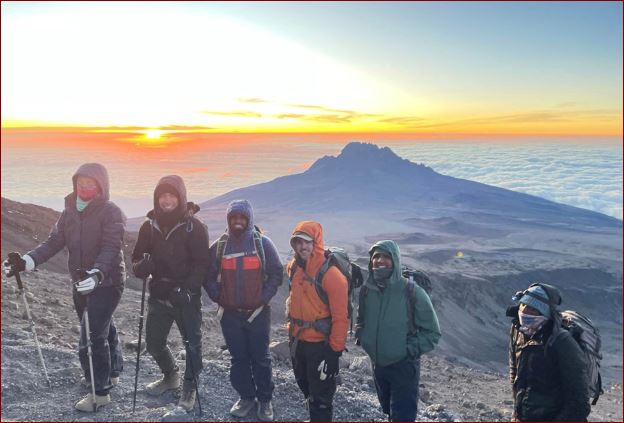For many adventurers, summiting Mount Kilimanjaro is the ultimate dream. Every year, this majestic mountain attracts thousands of experienced hikers who embark on a challenging journey to reach its snowy peak. It’s one of Africa Safaris sort after adventure! If you’re considering taking on this iconic climb, here’s everything you need to know to make the most of your trip.
Choose your route
There are six main routes in Kilimanjaro National park to climb Kilimanjaro, each with its own length, level of difficulty, and success rates. The route you choose will depend on your budget, the duration of your trip, and the tour company you book with.
Here’s a brief overview of the primary routes:
1. Marangu: This route is nicknamed “the Coca-Cola route” because of the huts along the way where hikers can rest and purchase refreshments. However, it actually has a low success rate due to many underestimating the challenge and rushing to the summit in just five days without proper acclimatization.
2. Machame: This is the most popular route, with a success rate of over 60% when completed in seven days. It is also known as “the whiskey route” for its more challenging terrain.
3. Rongai: The easiest route on Kilimanjaro, but also the least scenic and more expensive due to the limited number of budget operators in the area.
4. Shira: This route involves gaining a lot of altitude early on and joining the Machame route later. It’s demanding and costly, as it starts from the west side of the mountain.
5. Lemosho: Regarded as the most picturesque route, it offers a diverse range of challenges but is also one of the pricier options.
6. Umbwe: Recommended for experienced climbers seeking an extreme challenge, this route involves more scrambling and climbing than regular hiking.
Choose your budget
Prices for climbing Kilimanjaro can vary greatly, with luxury companies charging up to $5,000 USD and budget companies charging as low as $1,000 USD per person. However, it’s recommended to go with a mid-range company for a few reasons. They often have more experienced guides, take better care of their porters, and you’ll have a safer and more comfortable journey.
Find an ethical tour company
Since climbing Kilimanjaro requires porters, it’s essential to book a tour company that provides all the necessary gear, guides, and support. Look for companies with positive reviews and a good success rate, and choose one that is committed to ethical and responsible practices.
Climbing Kilimanjaro Company comes highly recommend. They meet the guidelines of KPAP and have qualified local guides leading their treks. Begin your search with these companies.
Tip your guides and porters
While not mandatory, it’s customary to tip your guides and porters at the end of your trek. This additional compensation is greatly appreciated by the hardworking team that helps make your climb possible.
Additional tips:
1. Opt for a trek of at least seven days to increase your chances of success and proper acclimatization.
2. Research and compare tours and prices before booking to ensure you’re getting the best deal and with a reputable company.
3. Pack the right gear for the terrain and weather conditions. A good tour company should provide necessary gear, but it’s always a good idea to bring your own as well.
4. Train and prepare physically for the climb. It’s a demanding journey, and being in good physical shape will greatly increase your chances of success.
5. Respect the environment and follow the Leave No Trace principles while on the mountain.
6. Add a Tanzania Safaris to your trip to make it an unforgettable experience.
Final thoughts
Kilimanjaro Hike is an incredible experience that takes careful planning and preparation. By choosing the right route and a responsible Kilimanjaro tour Operator, you can increase your chances of reaching the summit and having a safe, enjoyable trip. And remember, while it may be a challenging endeavor, the sense of accomplishment and the breathtaking views from the summit make it all worth it. Happy climbing!







Click here to change your cookie preferences